In the fifteen years (yes, really) since the original Assassin’s Creed, it seems like there’s been a new game every five minutes. In the wake of Assassin’s Creed Mirage, a whole new wave of players are wondering how to get started with a series that seems entirely impenetrable. Why are there three versions of Assassin’s Creed 2? Why did they stop numbering games? Where did the multiplayer go?
Wonder no further, however! This guide will cover how to play every mainline Assassin’s Creed game in 2023, which order you should play them in, and which ones are worth skipping entirely. It’s worth noting that only mainline, story-critical games will be touched on here—I’m very sorry to all five of the hardcore Assassin’s Creed Chronicles fans.
What order should you play the Assassin’s Creed games in?
With a series that’s been around as long as Assassin’s Creed, finding every game can be tough, not to mention figuring out the right order to even play them in. Simply work down this list, and you’ll soon be slitting throats in the shadows with the best of them.
Assassin’s Creed

The murder simulator that started it all. 2007’s classic Assassin’s Creed is still probably the closest to actual history, as it is loosely based on the real-life historical conflict between the Persian Ḥashshāshīyīn and the Christian Knights Templar.
That’s right—the Assassin Brotherhood was very real at one point in time, although they probably weren’t also involved in every subsequent conflict on the planet. Fans call it atmospheric and focused, while detractors call it repetitive and barebones, but this is definitely one you should try out for yourself.
It’s available on PC and through backward compatibility on modern Xbox consoles—at 60 FPS, no less. Just be prepared to turn the volume up, as the game inexplicably doesn’t have any subtitles.
Assassin’s Creed 2, Brotherhood and Revelations (The Ezio Trilogy)

If Assassin’s Creed was a proof of concept, Assassin’s Creed 2 cranked every one of those concepts up to 11, rocketing the series into mainstream acclaim with more bombastic sequences, more colorful settings, and more charismatic characters.
It and its sequels Brotherhood and Revelations—collectively referred to as the Ezio Trilogy after their shared main character—are beloved to this day, and for good reason. If you only play a few games from this list, make it these. The entire Ezio Trilogy has since been remastered for modern consoles in one package, meaning there’s very little barrier to entry before you can start adventuring through Renaissance Italy.
Assassin’s Creed 3
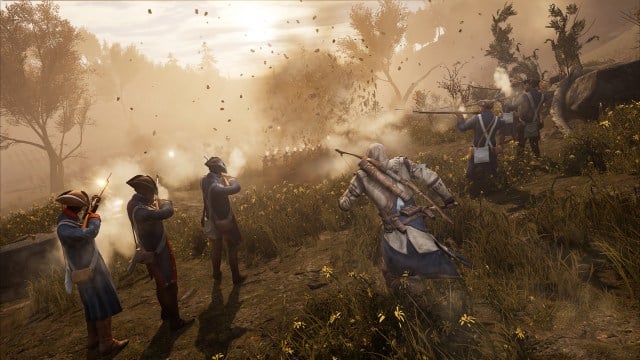
Yes, Assassin’s Creed 3 is actually Assassin’s Creed 5. It doesn’t get any less confusing from here. Coming off the suave, charming Ezio and his Renaissance backdrop, the refrigerator-shaped Connor Kenway’s soul-searching journey through the American Revolutionary War seems downright boring by comparison.
While AC3 does drag quite a bit, it does also shine in places (see: Haytham Kenway; that ending) that see it land squarely in the middle of ranking lists the world over. I’d say it’s worth a playthrough if you’re patient, and it’s even remastered on modern consoles for ease of access, but definitely don’t play it right after the Ezio Trilogy unless you’re ready for disappointment.
Assassin’s Creed 4: Black Flag
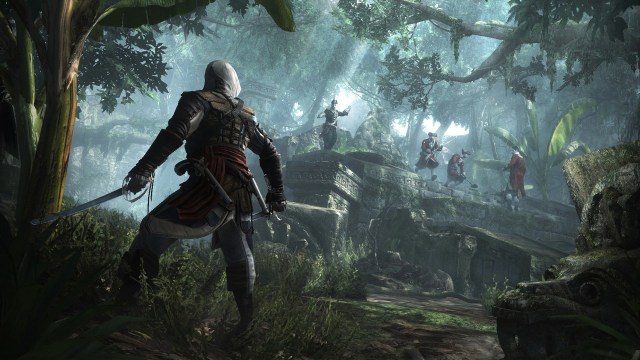
Black Flag is unique in a few ways. It was the first cross-generation entry in the series, released on seventh- and eighth-generation consoles simultaneously. It was also the last title to have a number attached, spelling the end of the original game’s overarching modern-day storyline and ensuring that Ubisoft could keep making Assassin’s Creed until the end of time.
As the name suggests, it’s a swashbuckling adventure through the Golden Age of Piracy, and although it can be buggy at times, the sight of a sunset over the Caribbean makes it more than worth it. Black Flag has never been officially retouched, but is available through backward compatibility, albeit at its original 30 FPS.
Black Flag was also the last time the cat-and-mouse multiplayer mode that debuted in Brotherhood made an appearance. As of the time of writing, the Black Flag multiplayer servers are still active, so if you do pick it up, make sure to give it a spin—there’s still nothing else like it.
Assassin’s Creed Rogue
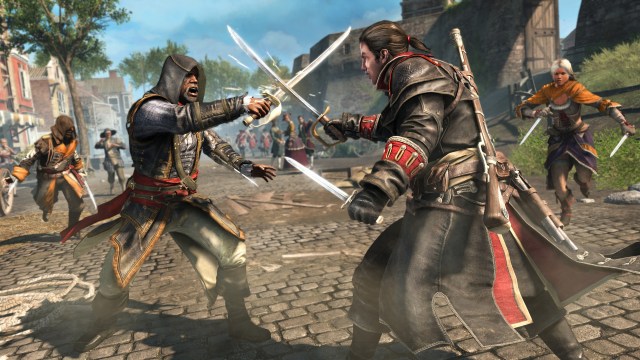
While both Assassin’s Creed Rogue and Assassin’s Creed Unity were released on the exact same day, Rogue is definitely the one to play first if you want to experience the timeline in the intended order.
The pitch of actually playing as a Templar for the first time in series history is compelling on its own, but Rogue also pulls off the seemingly impossible balancing act of wrapping up the Kenway story that started all the way back in AC3 while also setting the stage for Unity in an ending sequence that becomes absolutely jaw-dropping once you’ve played both games. Luckily, this one is also remastered and available on modern consoles, and it’s not one to miss.
Assassin’s Creed Unity
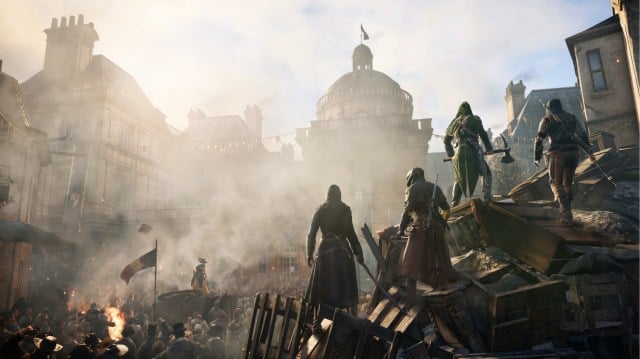
These days, Unity is known more by its marred reputation, which is doing it a real disservice. As the first Assassin’s Creed game developed exclusively for the PS4 and Xbox One generation, it was quite possibly the most ambitious game on this list, taking the classic Assassin’s Creed formula and supercharging it with the new technology available to the developers… only to fall flat on its face as its launch was severely hampered by bugs and optimization issues.
To this day, it’s remembered as “the bad one,” but after years’ worth of fixes, it might just be the most stunning Assassin’s Creed game yet. It’s available on modern consoles through backward compatibility and is definitely worth a try—and don’t forget to pick up the free Dead Kings expansion while you’re at it.
Assassin’s Creed Syndicate
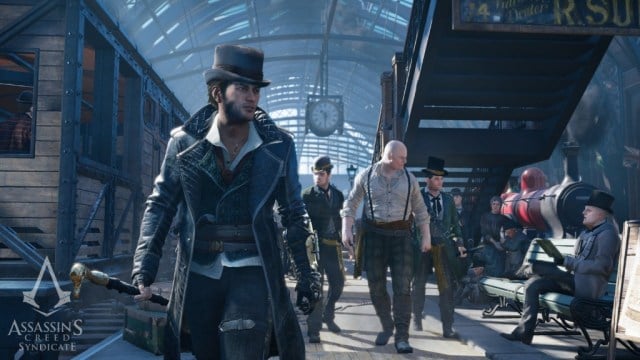
Syndicate is another by-the-numbers iteration of the Assassin’s Creed formula, and unwittingly wound up becoming its swansong after the series’ focus was shifted midway through its development. It could have been something special if it had allowed you to take a slightly more active hand in running your street gang—it seemed like the perfect excuse to bring back the management system last seen in Revelations—but as it is, it’s average on many fronts and largely forgettable save for the bite-sized World War One section.
You’re better off sticking with Unity, especially since Syndicate does absolutely nothing for the overarching modern story. Like Unity, you can play it on current-gen consoles through backward compatibility.
Assassin’s Creed Origins

Following the harsh critical reception of Unity, Assassin’s Creed Origins was meant to give the stagnant series a shot in the arm. Dark Souls-inspired combat, enemy levels, a more robust gear system—it even breaks away from the mostly linear timeline of the other games, technically serving as a prequel for the entire series as it focuses on the founding of what will later become the Assassin Brotherhood we know and love.
It’s by far the most beloved of the “RPG trilogy,” with a truly remarkable central performance by Abubakar Salim keeping the story emotional and grounded even as it ventures into the realm of myth and ancient history. While never officially remastered, it did receive a quiet behind-the-scenes update to allow it to run at a full 60 FPS on modern consoles. You’d be doing yourself a disservice if you didn’t check this one out.
Assassin’s Creed Odyssey
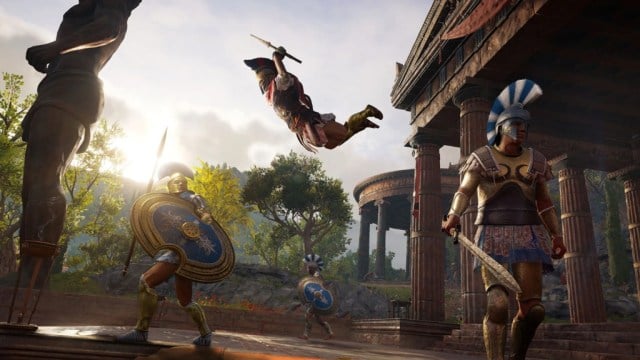
Odyssey took Origins’ RPG mechanics and expanded them massively, for better or worse. Gear scores, skill trees, and a map the approximate size of Venus—Odyssey is a far more divisive game than Origins thanks to the huge amount of stuff crammed into it, making it play more like a hundred-hour looter-shooter than an Assassin’s Creed game.
This entry also takes place long before the founding of either the Assassins or Templars, reducing the player character to essentially just a random person in Ancient Greece. Combine that with an absolutely unconscionable runtime, and you’re probably better off skipping this one, as it doesn’t really fit in with the rest of the series.
Assassin’s Creed Valhalla
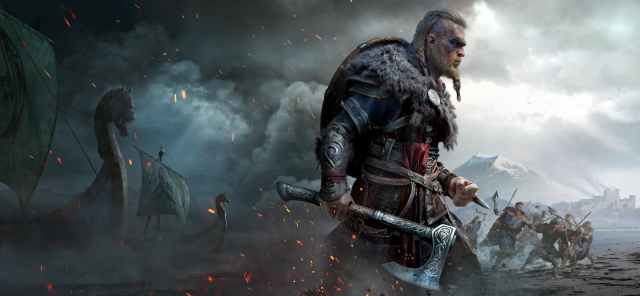
Valhalla is essentially a bigger, longer version of Odyssey. Much like its predecessor, it’s more focused on telling a story largely unrelated to the Assassin-Templar conflict, and that story can take up to seventy hours to complete just on its own thanks to a frankly appalling level of padding.
Unless you’re capable of sinking your teeth into a truly massive, mostly samey game without getting burnt out, Valhalla might be one to miss—sure, it introduces Basim, the protagonist of the next game, but you can just as easily get that knowledge from a YouTube video. Be wise with your time here.
Assassin’s Creed Mirage
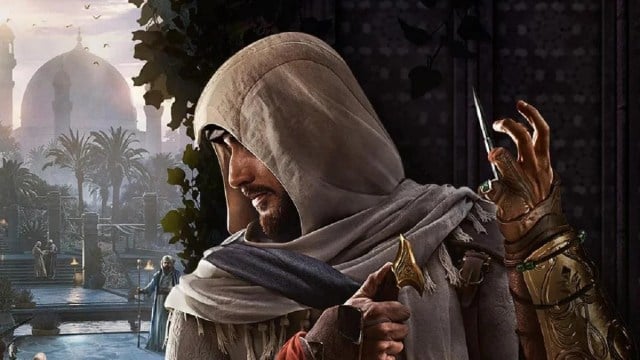
After the RPG trilogy split the series’ fanbase down the middle, Ubisoft did what it does best and walked those changes back. Mirage, the most recent entry in the series, is very much a game made for fans of the classic formula, transporting players back in time in more ways than one with its focus on stealth and technique wrapped up in a dazzling Middle Eastern setting.
Although it doesn’t quite reach the dizzying heights of Assassin’s Creed Brotherhood, it’s still a refreshing palate cleanser if you’re sick of staring at numbers and tallying your upgrade materials. It’s even available at a reduced price of $50, making it perfect for those who don’t want to shell out for giant Deluxe Editions.


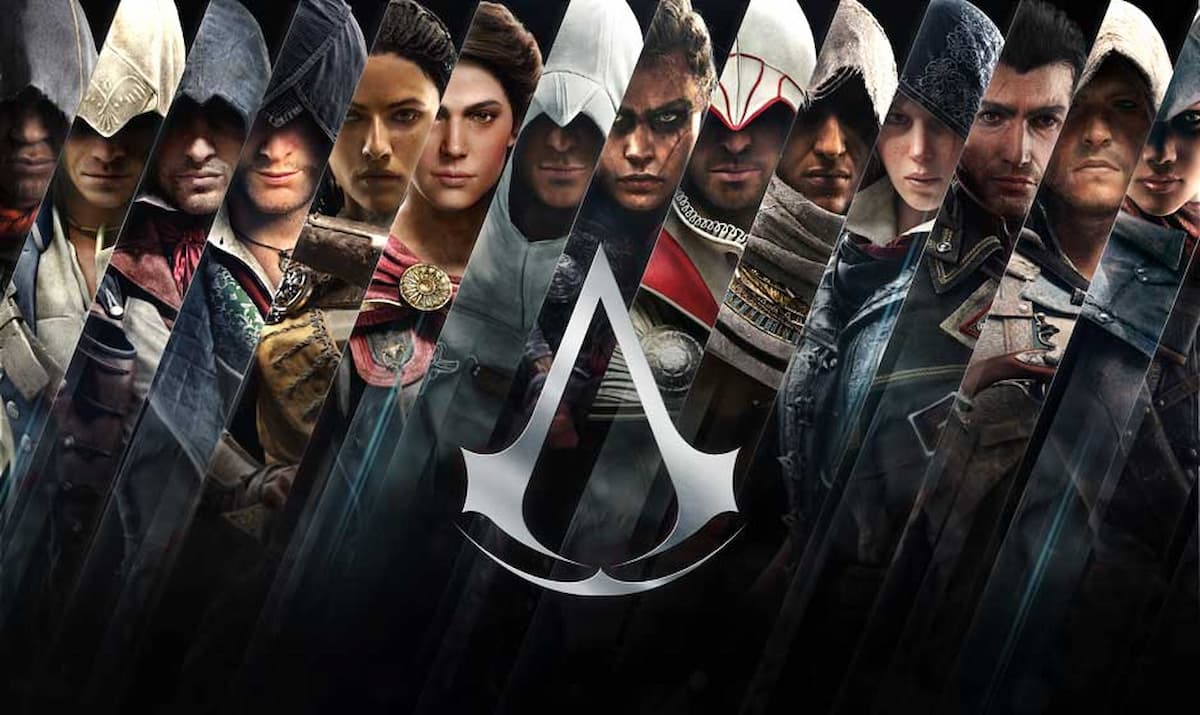
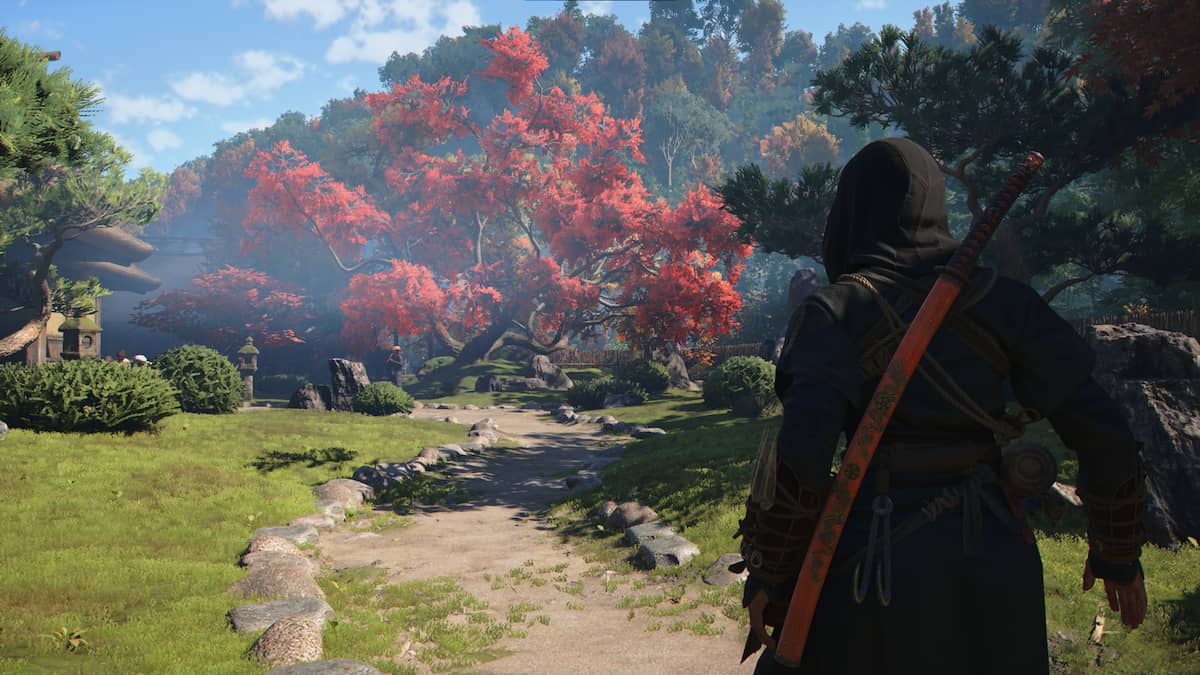
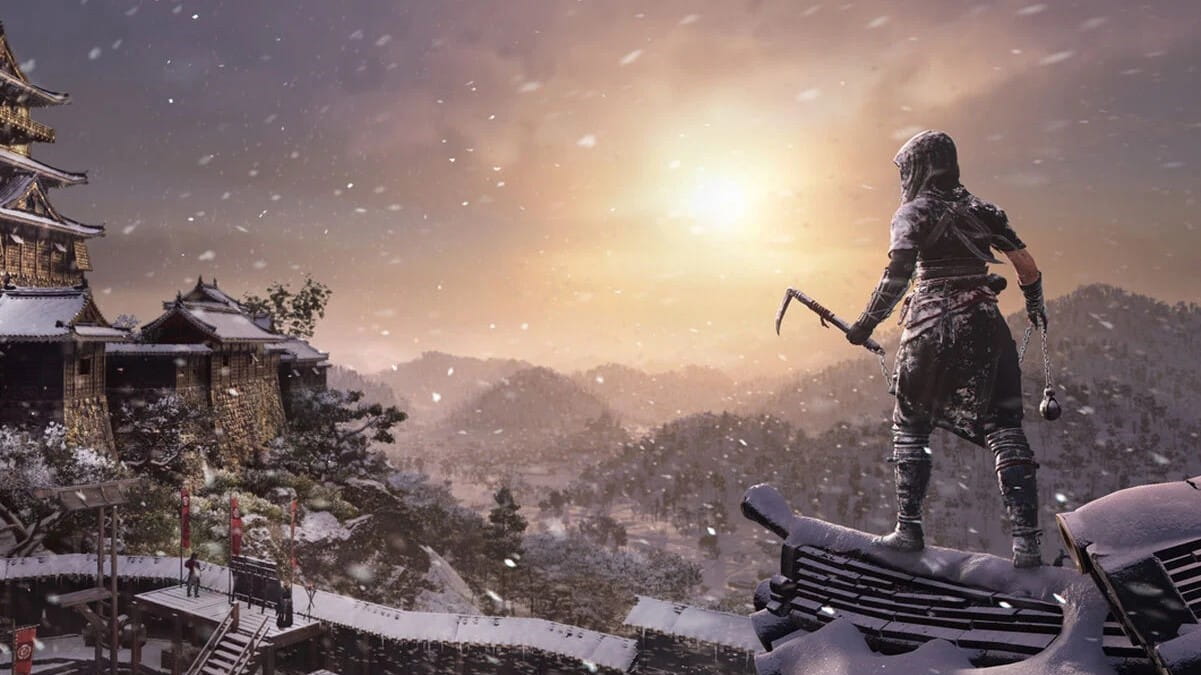
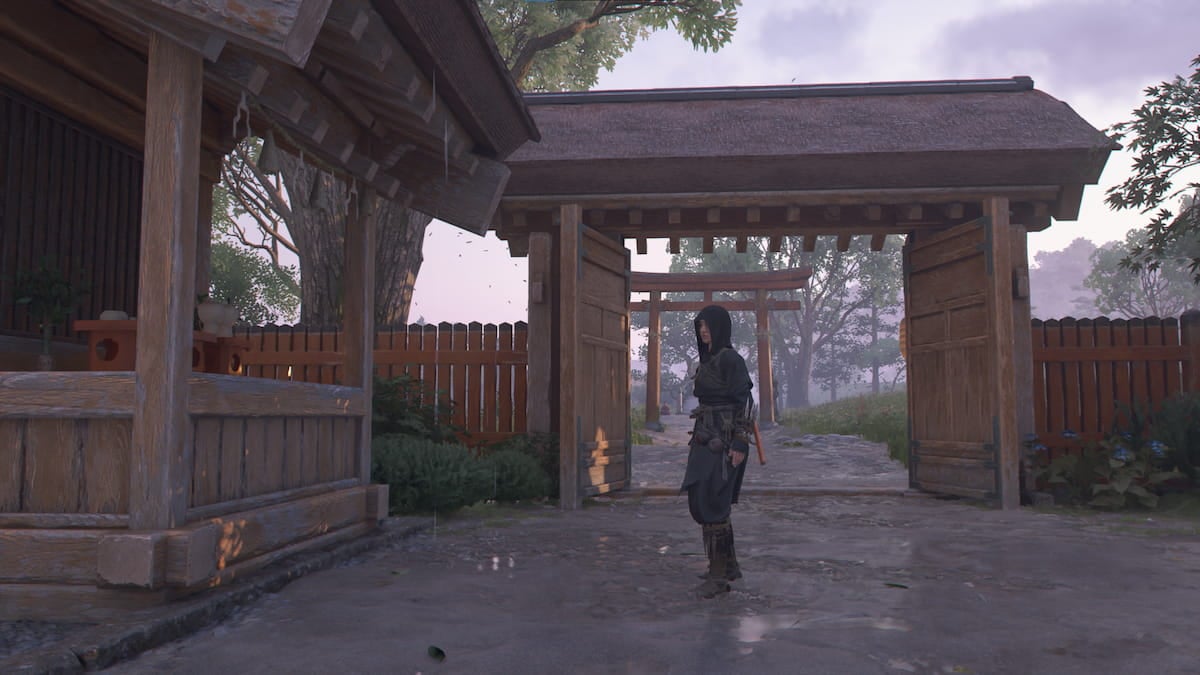
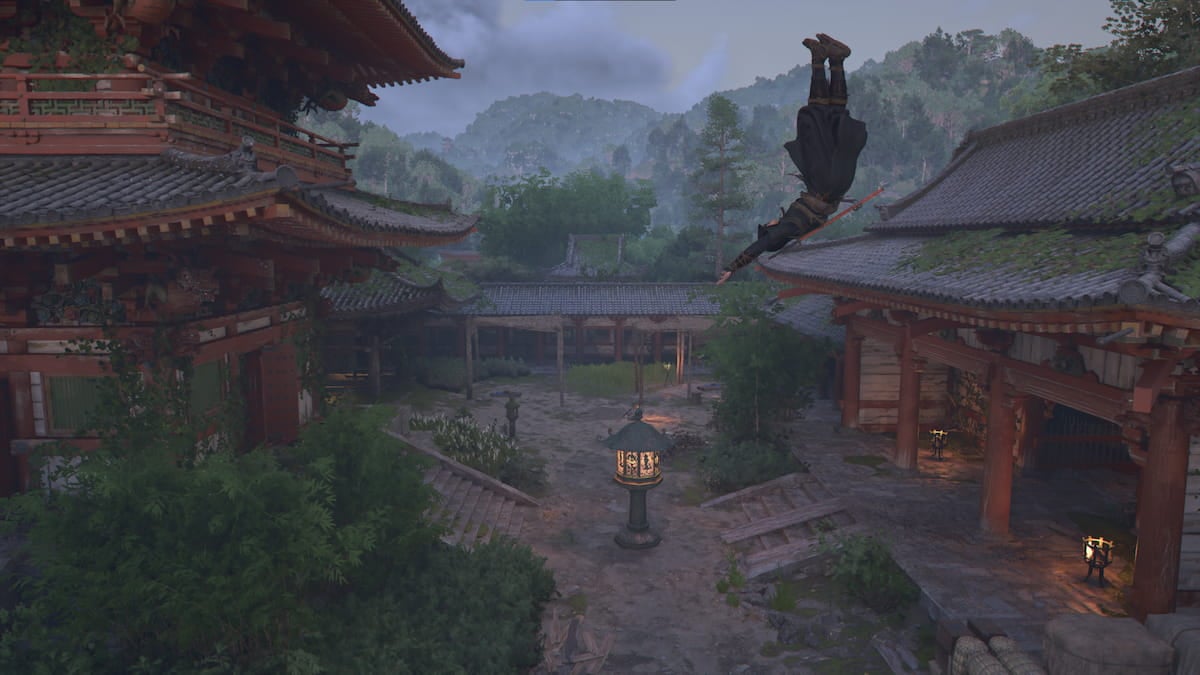
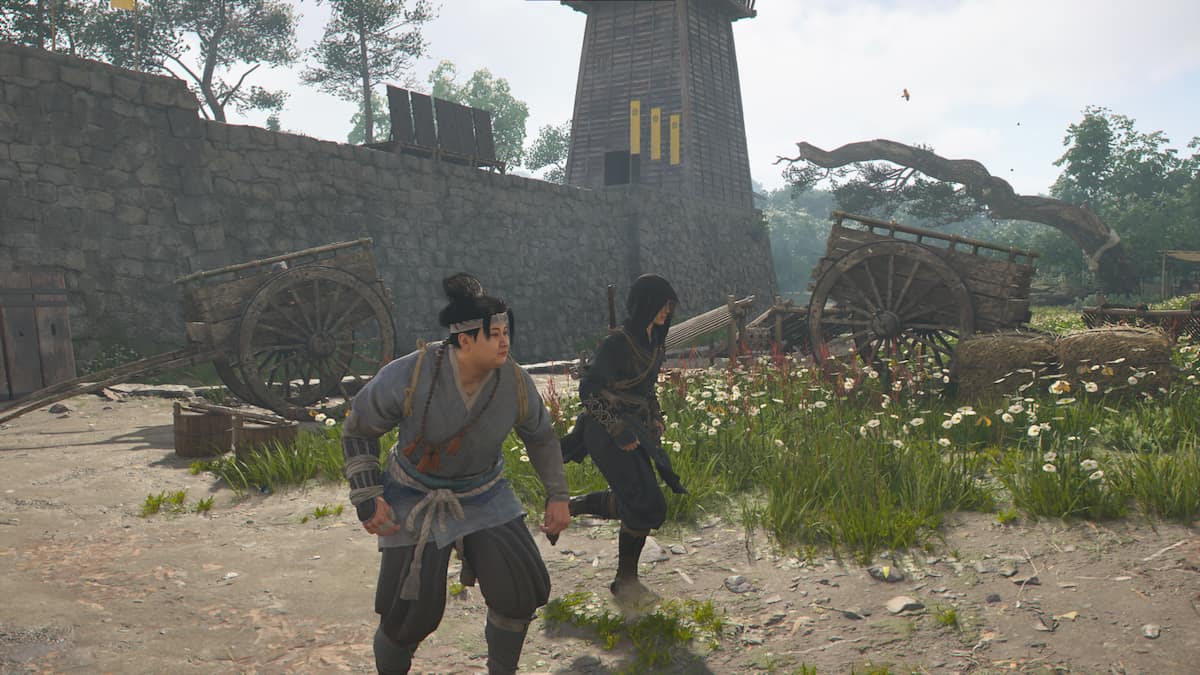
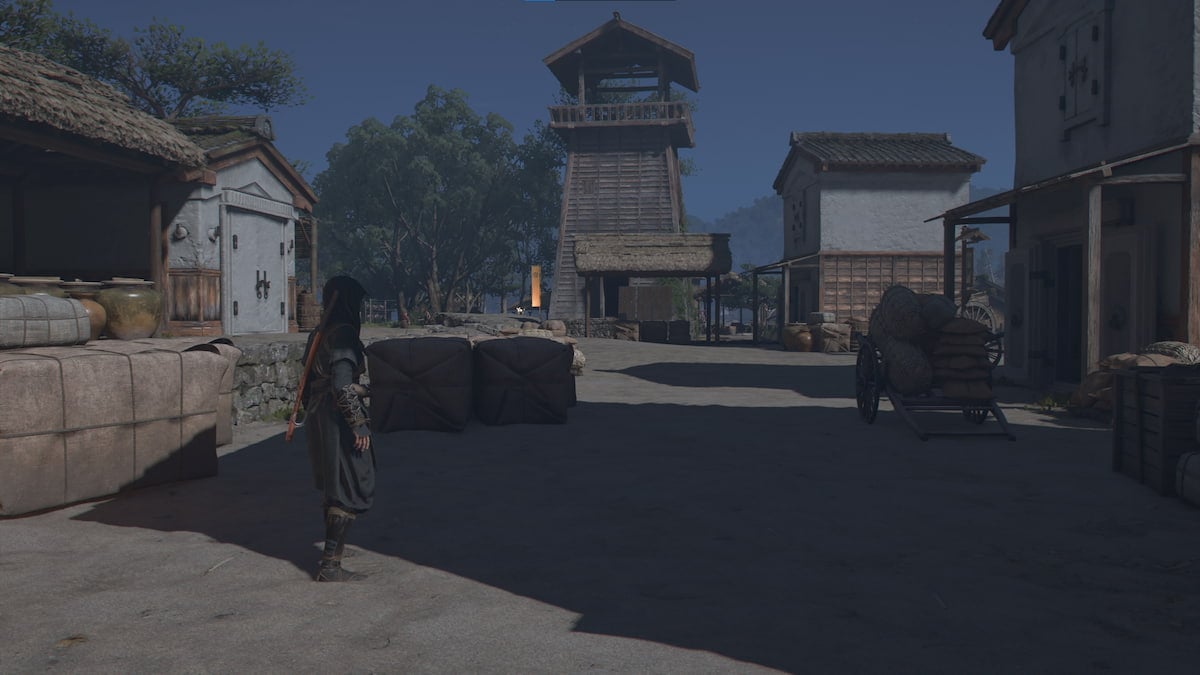
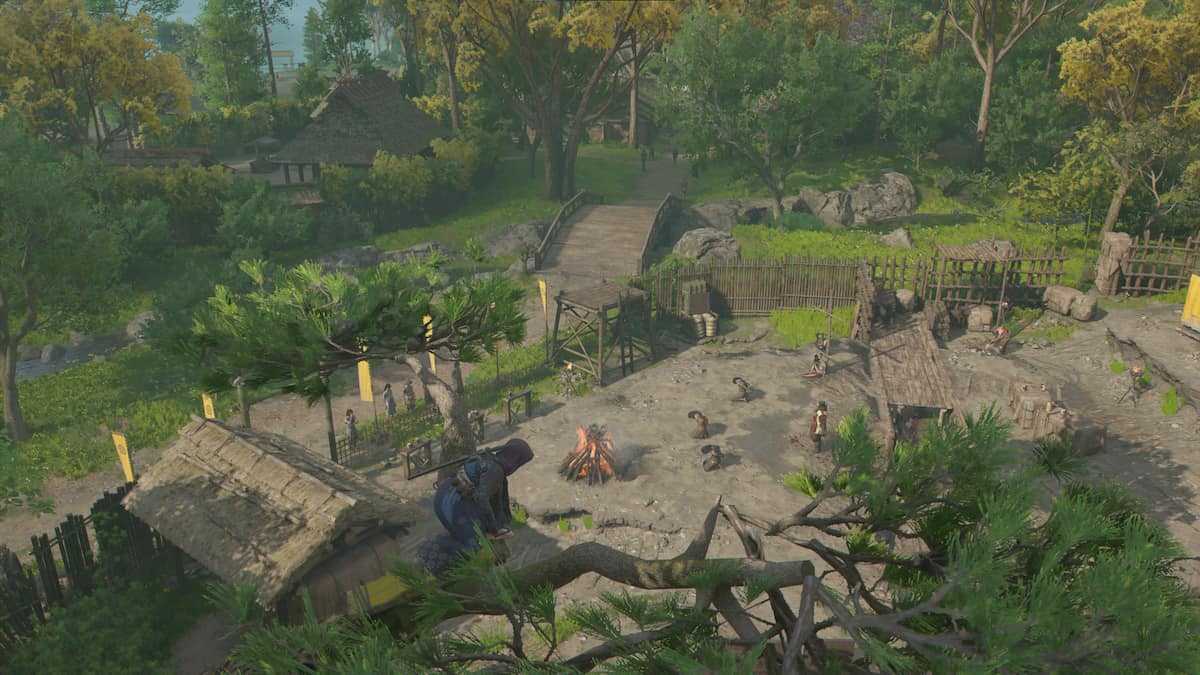
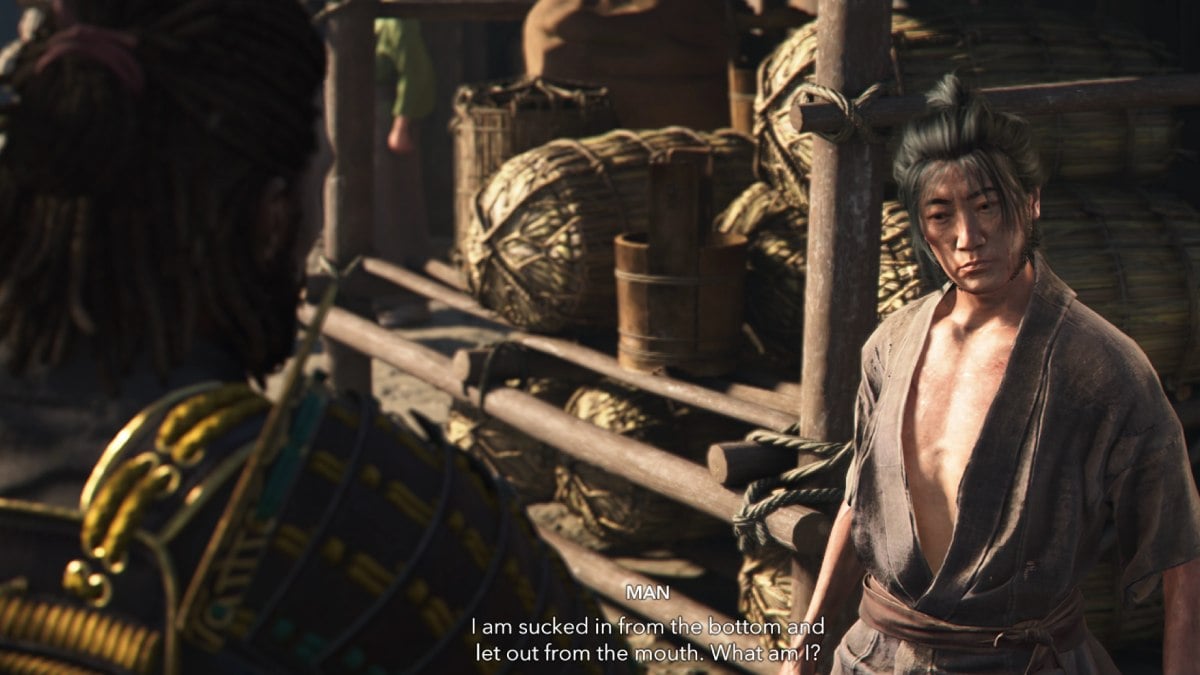

Published: Oct 7, 2023 06:49 pm